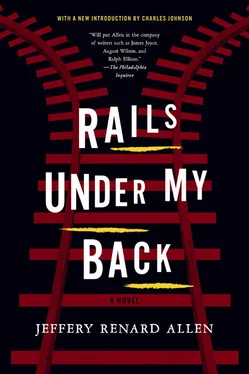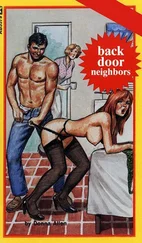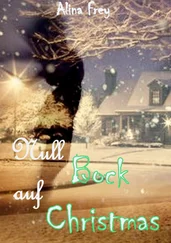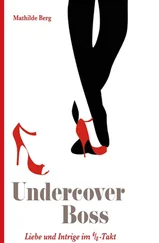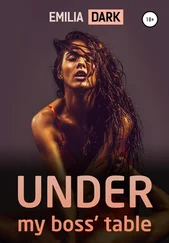Indians?
Yes. And twins.
Twins?
Indians and twins.
Indians can’t have twins.
Couldn tell em apart. Nola and Idelia. The one who birth me. One my mammy Idelia and the other my aunt T Nola. They had raven-black hair and wings that fly bout they heads whenever they get excited, which was rare, since they both talked bout as much as a log. But beautiful. I member the sound of they walking hips. Like cooter shell. Whole Daddy married the one that become my mamma. Maybe he married them both. Cause you couldn tell them apart and I don’t know all there is and ain’t to tell.
Me and my brother, recent saint of memory, grow up wit the four fussy red hands of these two sisters. Barely women when Whole Daddy marry em but old in work and season.
Well, they duddied up, usin money Page prescribe. Page hired the best preacher. Whole Daddy’s choice. They jumped the broom on Page’s front porch all cluttered wit saddles, bridles, bale cotton, hoes, rakes, a washstand, washbasin, pitcher, towel, and wash bucket. Page squeal a note or two on the fiddle. Then he throw a sumptuous feast.
REBS COME RIDIN TO SABINE HALL and tell Page to git ready to fight. Said, All yo nigga foolishness fine peacetime, but this wartime. Said they’d give him three days and he’d better come, else they’d come and git him. He said, Guess you’ll jus have to come and git me. I done already served.
The war came. Some woogies holed up in they houses all circled bout wit sharp stakes they niggas build. Other woogies run off to the war, blessed with traveling dust they niggas sprinkle on they feet.
By and by, word came. Whole Daddy ride horseback up and down and all about ringing the dinner bell and yelling above the clanging, Free.
Pappa Simmons rested his tongue, a humming ache of silence. Porsha studied his silence, a red stain in the light.
Nightfall, Whole Daddy gather up his hunting rifle and stepped bold as daylight into Page’s bedroom.
Porsha saw it. Sun pushing through a window, bogarting.
Ernest, Page said. By and how, what’s the meaning of this? You free.
Whole Daddy ain’t say a word. He commence to workin. Raid Page’s larder. Clean out Page’s wardrobe, cluding his best pair of shoes. (They wore the same size.) He looked at Page. Follow me, he said. Page followed him out to the kitchen. Whole Daddy cleaned out the pantry provisions. Follow me, he said. Page put on his hat. He followed Whole Daddy out to the stables. Whole Daddy cleaned it out, then he put all his cleanings into Page’s buckboard. He fixed the two best horses. Took Page’s best shotgun. Follow me, he said. By God, Ernest, Page said. Can’t you see? Page was still in his nightgown. Get in the wagon, Whole Daddy said. Page got in the wagon, where the two Indian twins sat waiting. Howdy, Page said.
They rode bout three miles. Then Whole Daddy stopped the horses and stepped down from the wagon. He spread his arms wide, marking off the best fifty acres on Sabine Hall. All this mine, he say. Far as yo eye travel yonder and yonder and yonder and yonder too. I repeat, all this mine. Enter on pain of your life.
Okay, Ernest, Page said.
Since the hailstorm, Page had tried to be a better man than his father. But you can’t run wit the hare and hunt wit the hound.
What? she said.
Whole Daddy said, I’m gon come back fo some mules and hogs. Now get on back home.
Page tipped his hat to the ladies. Walked the three miles home.
They bedded down in the wagon. Whole Daddy sleep between the Indian twins. Those first weeks, Whole Daddy and the Indians keep one eye sleep and one eye shut. They didn’t take no chances. Never know if a cup of courage replace Page’s morning coffee. Never know if the old paddies come ridin. So they ain’t take no chances. They greet visitors down the sight of a rifle.
Whole Daddy and the Indians set to the sweat of work. Whole Daddy was a glutton for work. That’s why he stuffed his belly with three plates of food at each meal. Wore out his boots in a week. He say, In the morning sow yo seed and until evening do not let yo hand rest. Labor is the deck. All else is the sea.
He and the Indians sawed trees, split logs, cut and trim timbers fo a foundation and laid a line of Page’s bricks fo the house. Built the house with scrap boards from Page’s lumberyard. The house was nothing fancy. Front room, two bedrooms, a kitchen. They built a fence. Dug a well. Cut and hammer an outhouse. Nothing fancy. Jus a plank of oak stretched over a hole in the ground. When it rained, Lawd. Pappa Simmons pinched his white tomahawk nose, red.
They build a barn, a smokehouse. (The smokehouse my favorite place. Manfred and me, we be playin out behin the smokehouse, whipping each other wit chitlins.) And a hogpen. Fenced off with a shelter jutting from the barn. Hogs closed off in stalls.
Chickens. Yall ain’t have no chickens?
We had a coop. They built that too. And planted the harvest. Know how? Press a hole with yo heel. Drop a seed. Now cover it wit yo foot. Hard work. Pick worms off the growing crops.
Yuck. Slimy worms.
And we tended the yard. Oranges, grapefruit, tangerines, and what have you. Any kind of tree you can name.
Porsha looked out the window at the tumble of vegetation in Inez’s garden.
The Indians always take the dirty clothes down by the spring where stones sparkle like big white diamonds under the running water. Scrub your clothes clean clean. By and by, they build them a springhouse.
Them Indians could cook up a storm. Jack salmon wit some black-eyed peas and wild raspberries. My favorite. And squirrel.
Squirrel?
Yo mamma ain’t never make you no squirrel?
No.
I’m gon have Inez cook you one.
No, thanks. Yuck.
The Indians sold ginger cakes and whiskey. And they made shoes and seams. Spinned and weaved. One would treadle while the other wind fast. (You got to wind fast and take the thread right off the spindle, else it get tangled up.) Then they switch.
When he could catch a day or two away from the farm, Whole Daddy labor on the county railroad. Ride down and work a day here, a day there fo something extra to fill his pockets. He was a trackwalker. Walked ten miles a day hammering down loose spikes.
DON’T KNOW WHEN I WAS BAWN. Whole Daddy write it in his Bible. (The one he took from Page.) Then somebody lose the Bible. So, don’t know when exact, cept Whole Daddy say sometime around hog-killin day. So it musta been in December or January. You know how to kill a hog?
No, Pappa Simmons.
Get yo rifle and blast him right here. Pappa Simmons pointed to his forehead.
Porsha shut her eyes. At the back of her mouth, behind her clenched teeth. She tasted metallic gunfire. She opened her eyes.
Then slit the throat.
She closed her eyes. Red seeped through.
Dunk that hog in a vat of boiling water to get his hair off. Make him pink and white. Pink white. Now he ready fo the smokehouse. You bind and skewer his hind feet, then hoist him high on a pole in the smokehouse. Rip him ass to throat so the insides clean out.
IT RAIN ONE DAY and it cold next day and it rain again and cold again. Storm slow down work but it ain’t stop it none. You got to eat. Take two spoonfuls of turpentine. And fish oil to make you thick inside.
Yuck! Double yuck!
Mamma get sick, bone-sick. Whole Daddy work while Aunt T watch, then Aunt T work while Whole Daddy watch.
You ain’t going to die, is you?
I’ll have to. You want me to live forever?
Whole Daddy take the pillow from her head to ease her dyin. Turn her bed east facin the crossroad. And he cover up the clock wit a hog sack to keep her spirit from stealin into the glass. But she didn’t die. She didn’t die the firs night or the second or the third.
Читать дальше
